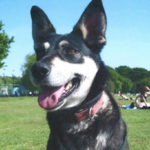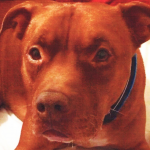The Animal Welfare Act 2006 only applies to protected animals which are defined as animals of the kind that are commonly domesticated, or are under the control of man, or are not living in a wild state.
A person is deemed to be responsible for an animal if they are the owner or the person in charge of it however, if the owner is under 16 years of age, then their parent will be deemed to be responsible for the animal.
Unnecessary Suffering
Section 4 Animal Welfare Act 2006
This offence can be committed by either an act or a failure to act. The test is whether the suffering could have reasonably been avoided or reduced and whether the conduct was that of a reasonably competent and humane person. Liability arises for the person who caused the suffering and for the owner if they permitted the suffering or failed to take reasonable steps to prevent it. Prosecutions were historically brought by the RSPCA but are now brought by either the police or the local authority. The maximum sentence is 6 months’ imprisonment and/or an unlimited fine in the magistrates’ court or 5 years’ imprisonment and/or an unlimited fine in the Crown Court. The court also has the power to deprive the owner of the animal and disqualify them from keeping animals in the future.
Tail Docking
Section 6 Animal Welfare Act 2006
It is an offence to remove the whole or part of a dog’s tail, unless for the purpose of medical treatment. There is an exception for a working dog aged no more than 5 days but veterinary certification is required.
It is also an offence to show a dog with an unlawfully docked, or partially docked, tail at any paid entry event in England and Wales. If the tail is lawfully docked, the dog can only be shown for the purposes of showing its working ability.
Liability arises for the person responsible for carrying out the procedure and also for the owner if they permitted the procedure of failed to take reasonable steps to prevent it. The offence carries the same sentence as for causing unnecessary suffering including deprivation and disqualification.
Dog Fighting
Section 8 Animal Welfare Act 2006
It is an offence to:
- Cause a dog fight to take place
- Receive money for admission to a dog fight
- Publicise a dog fight
- Encourage attendance at a dog fight
- Make or accept a bet at a dog fight
- Take part in a dog fight
- Possess anything for use in a dog fight
- Keep any premises for a dog fight
The offence carries the same sentence as for causing unnecessary suffering including deprivation and disqualification.
Mutilation
Section 5 Animal Welfare Act 2006
It is an offence to carry out a prohibited procedure. A prohibited procedure is defined as “…one that involves interference with the sensitive tissues or bone structure of the animal, otherwise than for the purpose of its medical treatment.”
The most common prosecution under this section is for ear-cropping.
Liability arises for the person responsible for carrying out the procedure and also for the owner if they permitted the procedure of failed to take reasonable steps to prevent it. The offence carries the same sentence as for causing unnecessary suffering including deprivation and disqualification.
Breach of Duty of Care
Section 9 Animal Welfare Act 2006
An offence is committed if a person fails to take such steps as are reasonable in all the circumstances to ensure that the needs of an animal are met to the extent required by good practice. Needs are defined as:
- A suitable environment
- A suitable diet
- Need to exhibit normal behaviour patterns
- To be housed with, or apart from, other animals
- To be protected from pain, suffering, injury and disease
This is a summary only offence which means it can only be dealt with in the magistrates’ court and the maximum sentence is 6 months’ imprisonment and/or an unlimited fine. The court also has the power to order that the owner is deprived of the animal and to disqualify them from keeping animals.









